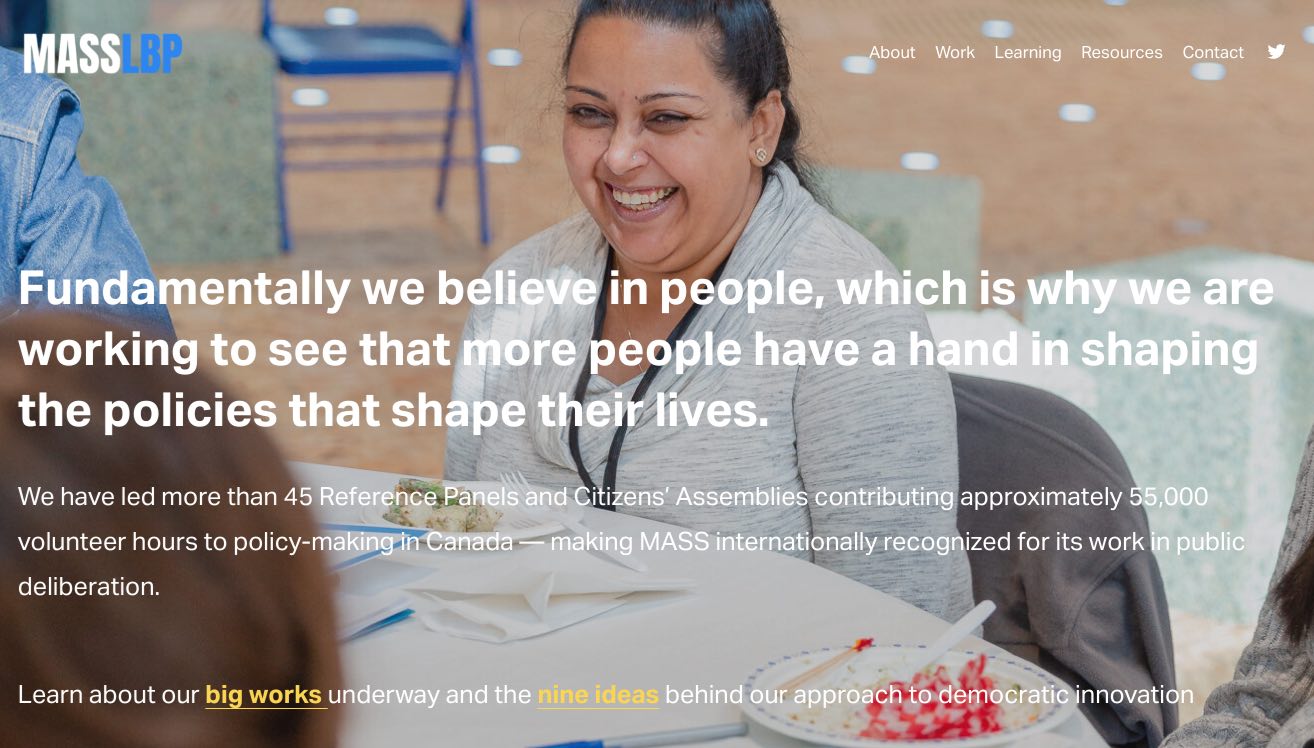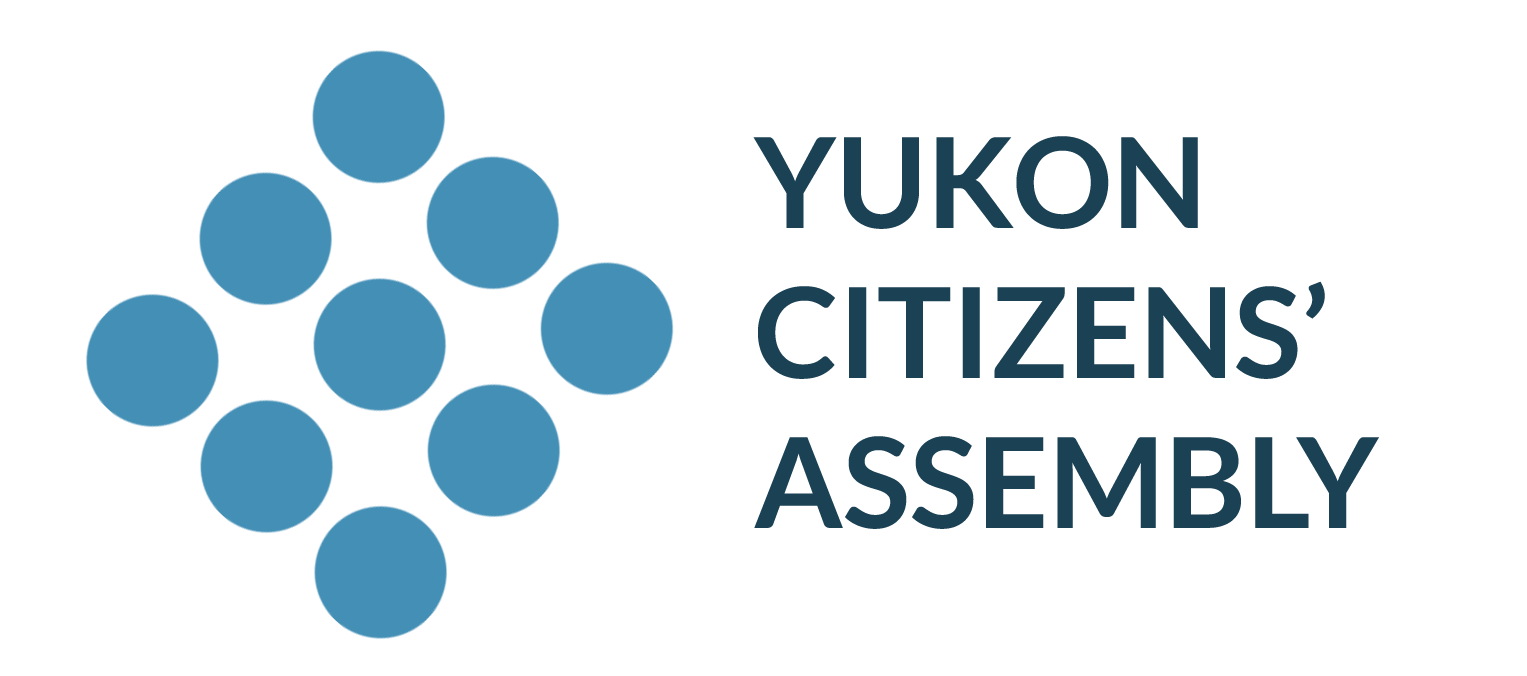How this works
Citizen Assemblies are a public learning process and a problem-solving process.
They begin with the assumption that the public is a resource, not a risk.
They are a special public trust given a seemingly impossible, but essential, task.
Assembly members are not direct representatives like MLAs and MPs. They are private citizens participating in an act of public service, much like those selected for jury duty.
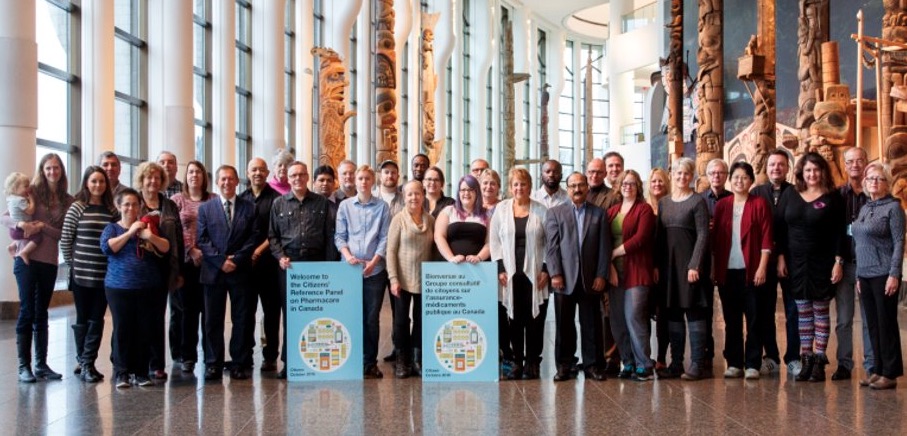
National pharmacare
Canadian Institute of Health Research (image provided by Mass LBP)
A Citizens’ Assembly is a representative cross-section of the population who come together to deliberate on a given issue and provide a set of recommendations, options, or a collective decision.
The rationale here is that a group of (most-likely) strangers, when given good information, resources and time, can find common ground and produce a shared decision that upholds the common good.
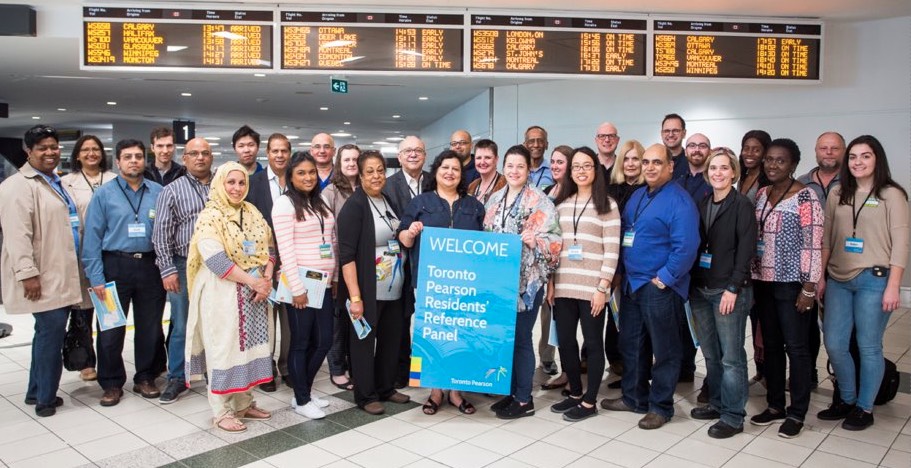
Noise management
Toronto Pearson Airport (image provided by Mass LBP)
How common?
Since 2007, more than 1,900 Canadians have volunteered 71,000 hours (about 8 years) to support more than 50 different Reference Panels and Citizens’ Assemblies. 1 in 32 Canadian households has received an invitation to serve in one of these long-form deliberative processes.
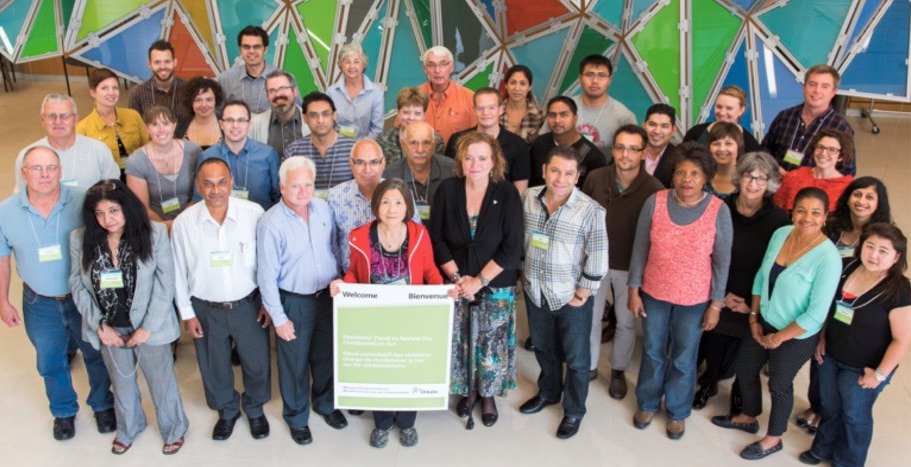
Condo legislation
Government of Ontario (image provided by Mass LBP)
How useful?
They have resulted in recommendations on topics like:
Regional transportation priorities
Housing legislation
Income polarization
Supervised Injection Services
Hospital Services and Budgeting
Municipal Amalgamation
Long-term land use planning
Compensation for municipal councillors
Heavy infrastructure
Airport Noise
Municipal Revenues
Pharmaceutical insurance
Mental Health
Municipal Planning Policies
Cancer Care
Public Housing
Electoral Reform
How widespread?
Citizen Assemblies are used to deliberate and make public policy recommendations in Ireland, Australia, New Zealand, France, Germany, Denmark, Belgium, Poland, Netherlands, and the United Kingdom.
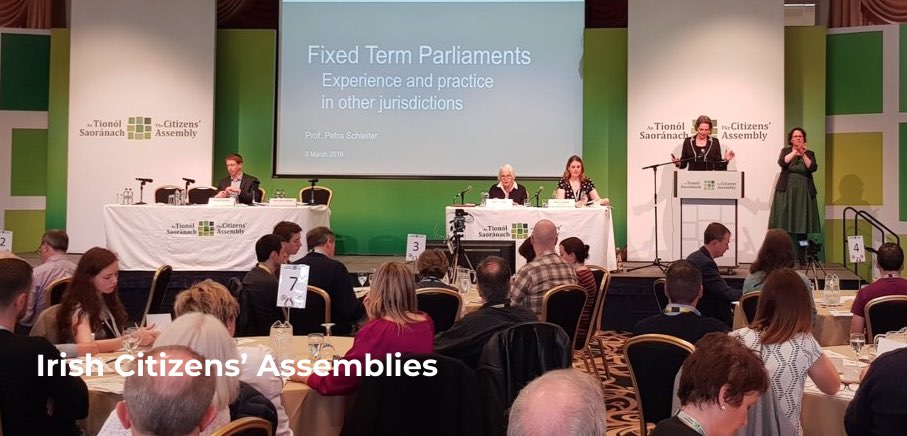
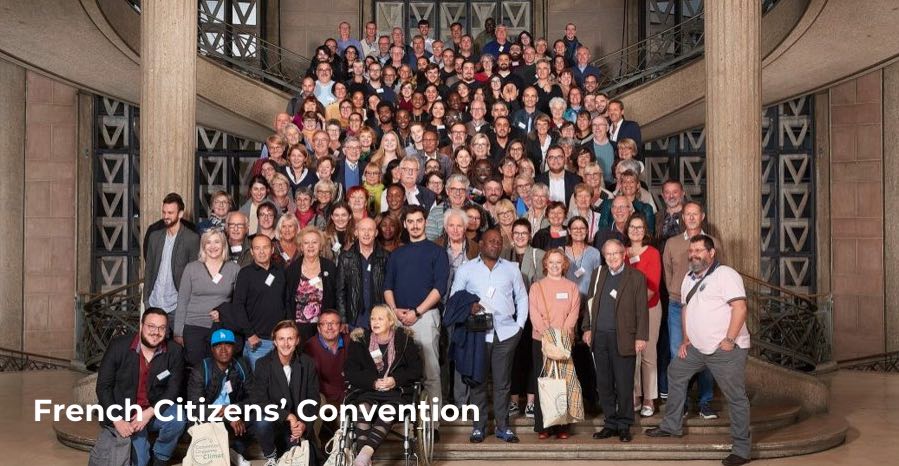
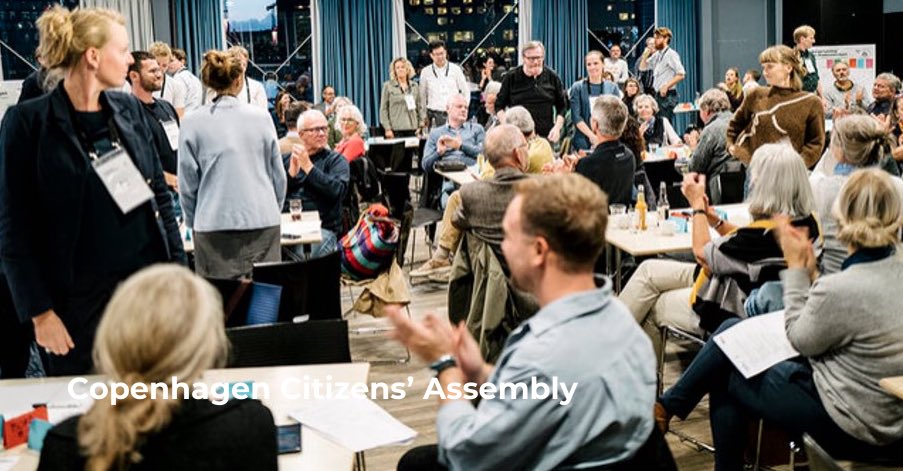
How come we haven’t heard more about them?
Recommendations flowing from such thoughtful, deliberative processes tend not to generate polarization or protest. They don’t often generate headlines.
How will the Yukon Citizens’ Assembly work?
The mandate of the Yukon Citizens’ Assembly is to recommend a model for electing Members of the Yukon Legislative Assembly. The Assembly will examine electoral systems and issue a report by October 31, 2024, recommending whether the current voting system should be retained, or another model should be adopted.
The Yukon Citizens’ Assembly will meet four times. One weekend in May, June, August and September. Care has been taken to ensure participation is as accessible as possible for those selected—no gatherings during weekdays, school vacation and public holidays, travel and accommodation covered, child and elder care costs reimbursed. Members will receive an honorarium of $200 per gathering day.
Each gathering will include presentations (blue) from experts, dialogue (green) in small breakout groups and reporting back to Assembly, and guidance, recaps and next steps from the Chair (yellow).
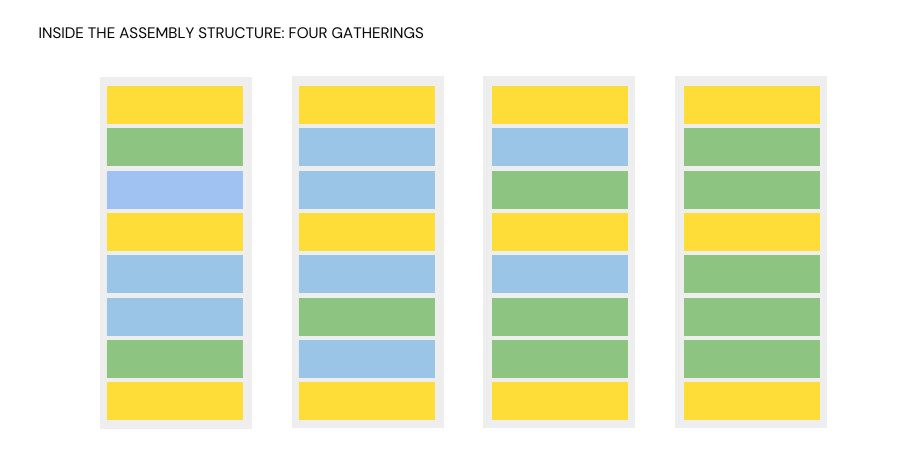 The heart of the assembly is people processing information.
The heart of the assembly is people processing information.
The initial gatherings are weighted towards learning and understanding. Later gatherings are weighted towards deliberation and building towards a recommendation.
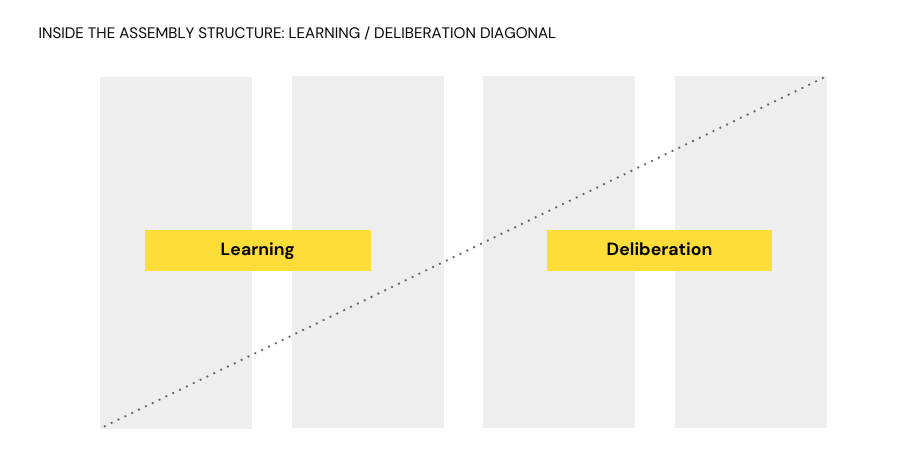
The dialogue portions begin with members working together to determine the values underpinning their work together and of an ideal electoral system for the Yukon.
They will then tackle the issues an electoral system must address, both general issues and issues unique to the Yukon.
Next, is prioritizing the issues and how each potential electoral system does or does not address them.
Finally, members will collaborate to determine their recommendation and write their report.
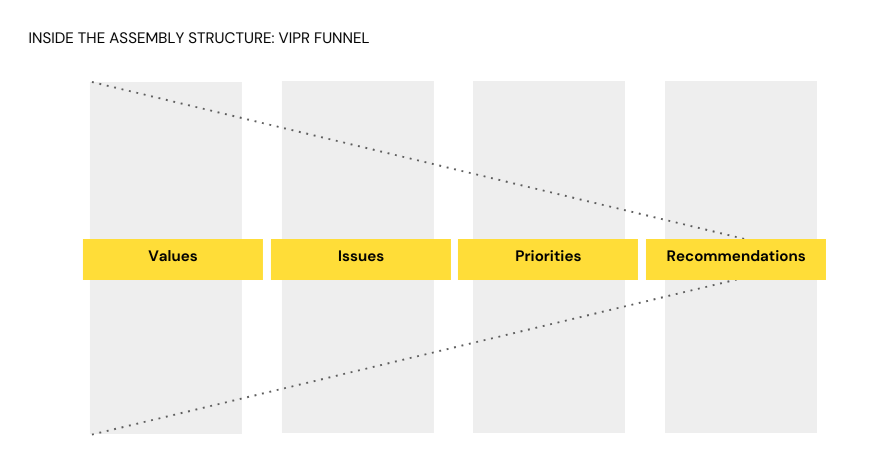
How come assembly members are not conducting public education and engagement?
A Citizens’ Assembly is a learning and problem-solving process. Assembly members are not direct representatives like MLAs and MPs. They are private citizens participating in an act of public service, much like those selected for jury duty.
Like a jury, assembly members are presented with facts (in this case, about how different electoral systems work and how each one can produce different outcomes), and then deliberate these facts, along with considerations around the unique factors present in the Yukon, adhering to the mandate and criteria they have been given.
Much like how jury members are not expected to conduct education and outreach before reaching a verdict in a criminal trial, there is no expectation, nor is it part of the agreement to participate, that members will conduct public education and outreach, either before or after, making their recommendation.
Also, extensive public engagement and public hearings on this topic took place between 2021 and 2023 led by the Special Committee on Electoral Reform. Indeed, it was this outreach that led to the creation of the Citizen’s Assembly. All the 2021-23 engagement undertaken by the Special Committee on Electoral Reform has been made available to assembly members.
How did you come up with this?
The Yukon Citizens’ Assembly is guided by best practices developed by those who have participated and led numerous reference panels and citizen assemblies.
Training for the YCAER team has been provided by Mass LBP.
